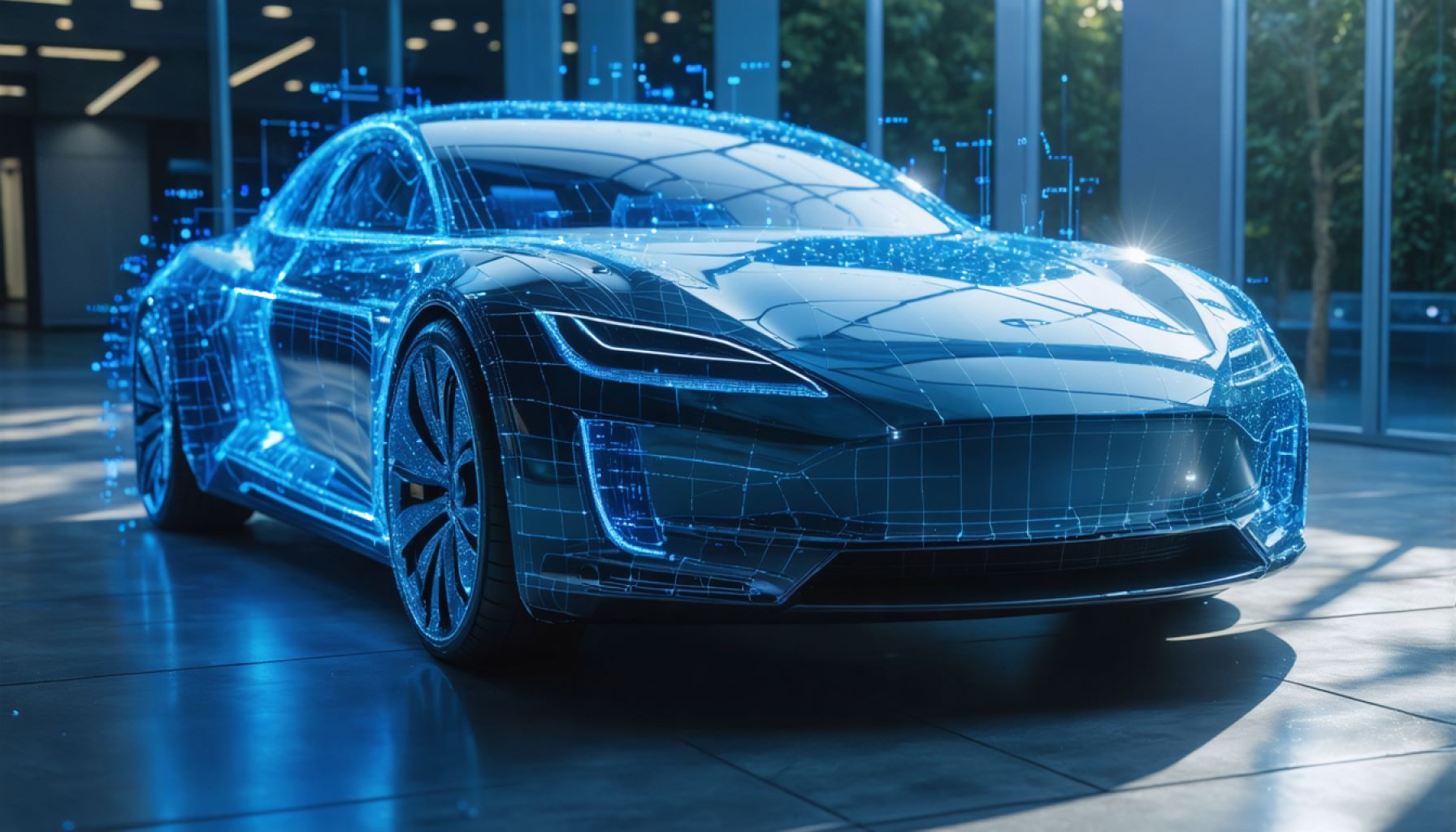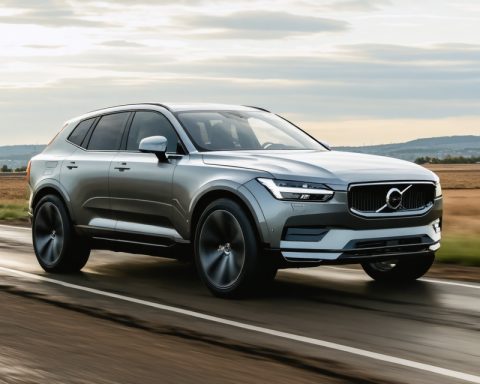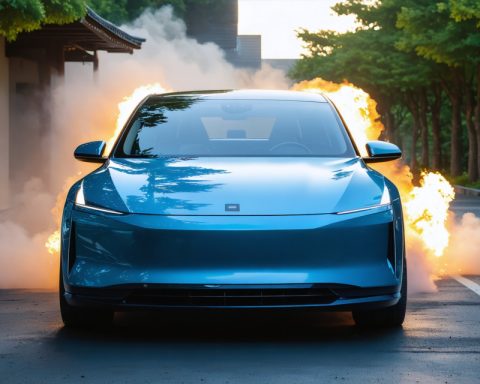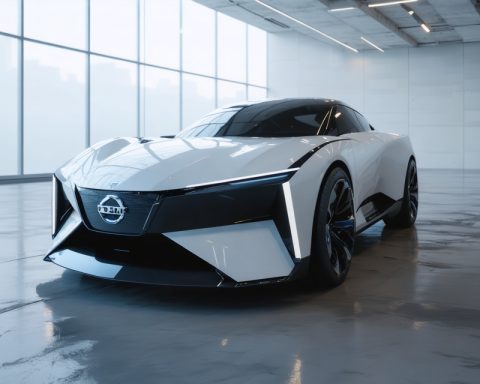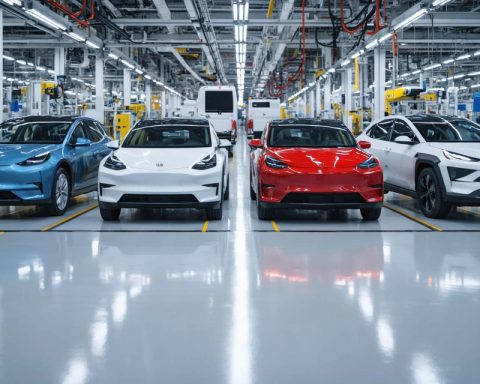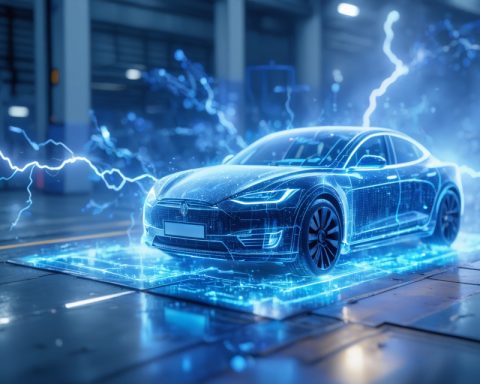- QuantumScape is pioneering anode-free solid-state lithium-metal batteries to revolutionize electric vehicles (EVs).
- Their technology promises longer range (400-500 miles), rapid charging, and enhanced safety by eliminating traditional anode-related limitations.
- Traditional anodes, usually made of graphite, are expensive and environmentally challenging, but QuantumScape aims to remove this need entirely.
- They use a proprietary ceramic separator to prevent dendrite formation, enhancing battery safety and longevity.
- A partnership with Volkswagen’s PowerCo SE aims for large-scale production, with plans to power up to a million EVs annually.
- The battery’s development is costly, but efficiencies and scale are expected to reduce costs over time.
- The advancements herald a significant shift towards cleaner and more sustainable transportation solutions.
Imagine a world where electric vehicles (EVs) dominate the roads, gliding silently with the promise of longer range, rapid charging, and enhanced safety. This vision edges closer to reality thanks to breakthroughs in battery technology. At the forefront of this revolution is QuantumScape, a breakthrough company redefining what’s possible with its anode-free solid-state lithium-metal batteries.
Batteries have long been the heart and soul of EVs, influencing everything from how far you can travel to how quickly you can hit the road again after charging. Traditional lithium-ion batteries, while revolutionary, have their limitations. Anodes, typically made of graphite, are crucial but also costly and environmentally taxing. Picture a future without them. QuantumScape dreams of such a future, creating batteries whose anodes form during the first charge, potentially slashing costs and improving energy density.
With automotive giants like Volkswagen’s PowerCo onboard, QuantumScape’s technology could be the game-changer EV enthusiasts have been waiting for. By utilizing solid-state technology with lithium-metal, they craft a battery that balances power, safety, and longevity. Picture roaming 400 to 500 miles on a single charge, smashing today’s typical range and opening new roads for electric driving.
Yet, the road to success is fraught with engineering hurdles. One of the most daunting is dendrite formation, microscopic killers that disrupt battery function. To solve this, QuantumScape introduces a proprietary ceramic separator that prevents these sharp metal structures from wreaking havoc within the battery. The result? A safer, more robust power storage system.
Now, take a moment to envision the beauty of these innovations eliminating traditional lithium’s Achilles heel: capacity fade. Without this degradation, EVs could enjoy significantly extended lifespans, offering an appealing proposition for both manufacturers and buyers alike.
Beyond technical marvels, QuantumScape’s collaboration with PowerCo SE sets the stage for mass production. The ambition is clear: create up to 80 gigawatt hours of these batteries, powering up to a million EVs annually. Such scale hints at a looming transformation in both the EV market and energy storage technology.
However, innovation comes at a price. The nascent stages of production are costly, akin to the evolution seen in aerospace with SpaceX revolutionizing the cost and performance of space travel. Yet hope pervades that with time, efficiency and scale will drive costs downward, making these advanced batteries more accessible.
What does this mean for us? The landscape of transportation is on the cusp of a profound shift with anode-free batteries at its core. As engineers overcome current barriers, the dream of a “no compromises vehicle” draws closer to the showroom floor. The once futuristic concept of cleaner, greener, and more efficient travel is not a distant dream—it’s the next chapter in the electric vehicle narrative.
The Future of Electric Vehicles: How QuantumScape’s Solid-State Battery Technology is Changing the Game
The electrification of transport heralds a new paradigm where silent, efficient, and sustainable vehicles dominate the roads. The linchpin of this revolution is advanced battery technology, and QuantumScape stands at the forefront with its groundbreaking solid-state lithium-metal batteries. The promise of these innovations is immense: longer range, rapid charging, and unparalleled safety are now within reach.
Unpacking the Technology: Anode-Free Solid-State Batteries
Traditional lithium-ion batteries have shaped the electric vehicle (EV) landscape, but they come with limitations. The typical graphite anode is both costly and environmentally burdensome. QuantumScape’s pioneering approach allows for an anode-free design, where the anode forms during the initial charge, promising reductions in cost and increases in energy density. By leveraging solid-state technology, QuantumScape’s batteries offer a potential range of 400 to 500 miles, significantly surpassing current benchmarks.
Addressing Key Challenges: Dendrite Formation
A critical challenge in solid-state battery technology is the formation of dendrites—tiny, tree-like structures that can form during charging and disrupt battery function. QuantumScape’s innovative ceramic separator effectively mitigates this issue, delivering a robust and safer power storage solution crucial for the longevity and reliability of EV batteries.
Scale and Collaboration: A Pathway to Mass Production
QuantumScape’s partnership with Volkswagen’s PowerCo SE signals an ambitious leap toward mass production. The vision is to produce up to 80 gigawatt hours annually, enough to power approximately one million EVs. While current production costs are high, resembling early aerospace innovations such as SpaceX, the pathway to scaling and cost reduction is clear.
Real-World Use Cases: Transforming the EV Landscape
The implications of QuantumScape’s battery technology extend beyond cars. This innovation can revolutionize energy storage for solar and wind power systems, reducing reliance on fossil fuels. Moreover, faster-charging batteries with longer ranges enhance the viability of electric public transport and shipping industries.
Industry Trends and Predictions: Looking Ahead
The EV market is poised for exponential growth, with global sales expected to rise significantly over the next decade. As production scales and costs decrease, the adoption of solid-state batteries will likely accelerate, leading to cheaper, more efficient EVs. The collaborations between automotive giants and battery technology innovators will play a pivotal role in shaping this transformation.
Pros and Cons: A Balanced Overview
– Pros:
– Enhanced energy density and range.
– Improved safety due to reduced risk of dendrite formation.
– Potential for reduced environmental impact without graphite anodes.
– Cons:
– High initial production and R&D costs.
– Technical challenges in scaling up manufacturing.
– Transition period required for market acceptance and infrastructure adaptation.
Actionable Recommendations
1. Stay Informed: Keep abreast of the latest developments in battery technology and EV innovations. Websites like QuantumScape and major automotive news outlets provide valuable insights.
2. Consider Future Investments: As solid-state technology matures, potential investment opportunities in EV companies and battery manufacturers could become attractive.
3. Sustainability Focus: Align personal or business transport decisions with technologies that reduce environmental impact, enhancing long-term sustainability efforts.
QuantumScape’s innovations point toward an exciting future for electrified transportation. As engineering breakthroughs continue, the reality of widespread EV adoption becomes more achievable, ushering in a cleaner, more sustainable era of travel.
